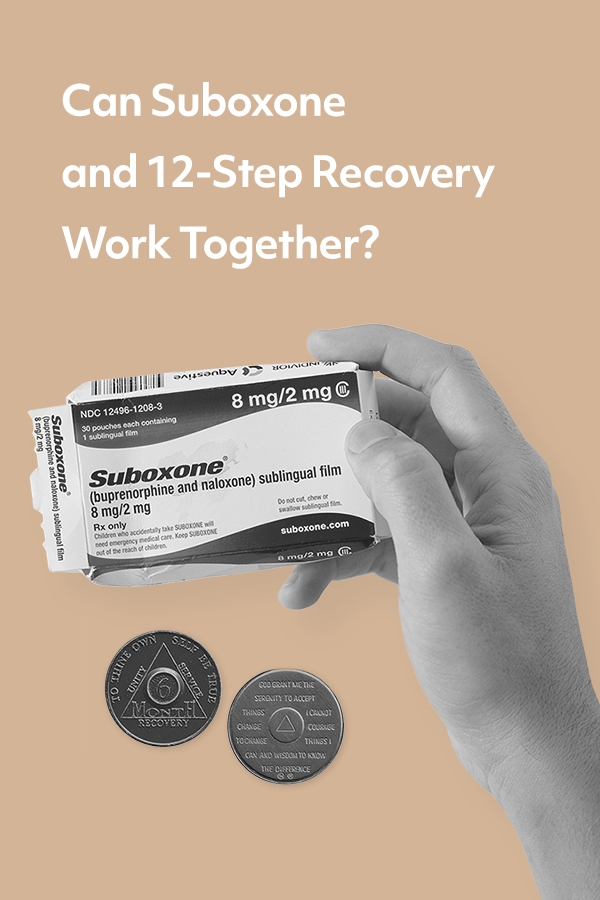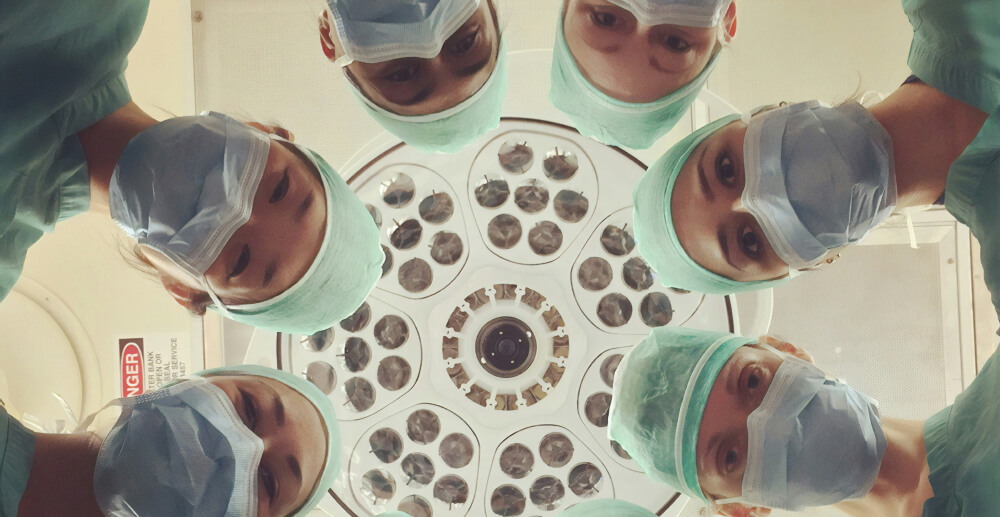Many people in abstinence-only 12-step programs take a hard line against Suboxone. Corissa argues that both Suboxone and the steps have saved her life.
As people in recovery, especially 12 step recovery, we strive to feel apart of, something we often didn’t feel when drinking or using. We want to have a sense that our voices matter, and we’re part of the community. The recovery community becomes an open forum for us to communicate, relate, and belong.
However, there is a dispute between people who are in programs like the 12 steps and people who are in Medication-Assisted Treatment programs (MAT), such as Suboxone maintenance. People in 12 step programs like Alcoholics Anonymous or Narcotics Anonymous are characteristically known to be against any form of medication. Some people are even bold enough to vocalize their feelings in meetings, directly to those on medication. As a person in recovery, who used Suboxone and is a participant in 12 step recovery, I want to explain why this happens, where the stigma comes from, and give my personal outlook on why we should all work to eradicate stigma. A common phrase heard in the rooms of 12-step recovery is, “It’s your recovery, this program is only a mere suggestion.” So why the judgment?
What is MAT, and Why Does it Face Stigma?
Medication-Assisted Treatment, and more specifically, Suboxone maintenance, is the gold-standard treatment for opioid addiction, using medication with counseling to prevent withdrawal from opioids and balance brain chemistry in recovery. We answer questions about Suboxone on our blog, explaining, “Suboxone operates by binding the opioid receptors to prevent withdrawal while producing a minimal high, therefore helping to prevent against any recreational use. This binding helps individuals stop their heroin or pill habit by reducing cravings.”
“Taking medication that enables recovery is on the same tier as abstaining from narcotics entirely”
Stopping the heroin or pill habit? Isn’t that what recovery is in a nutshell? I believe that taking medication that enables recovery is on the same tier as abstaining from narcotics entirely. Some other people in 12 step programs do not agree. Many people say that being on medication in a dominantly abstinent program does not count towards sobriety since you are still on a medication that they consider “mind-altering” or “drug dependent.” What is mind-altering about it? Does it get you high? People in recovery consume mood-altering cigarettes and caffeine, but we don’t judge. Some people are so eager to tear Suboxone down because it wasn’t the way they got sober. At times, I think to myself, maybe it’s because they don’t know much about the medication, or just have a lack of experience with it and that’s why they hate it so much. Fear of the unknown.
The Stigma of the Steps
There are many opinions surrounding the 12 steps and the 12 step recovery community. Some accuse 12 step programs of being “cult-like,” where people hug each other, chant prayers and sayings, donate money to their cause, etc… To be involved in a program like this, many feel the necessity to conform and to do things that they would normally stray away from. Interestingly, being in the 12 steps myself, I’ve heard many people spout about MAT not being welcomed, or that abstinence is the key to success, and there are even the readings saying that we are “free from cocaine/alcohol and all other mind-altering substances.” In a program that is all about positivity and becoming a different, better person, all while living strict principles in our everyday lives, it seems hypocritical that we would shun people away who are trying to arrive at the same end goal as us but just doing it a different way. According to The Fix, “Even Bill Wilson advocated for a methadone analog for alcoholics so that ‘lost sheep’ would have a medication-assisted way of progressing in AA and completing the 12 steps.” For me, without the medication, I wouldn’t even have been physically able to enter the rooms. And discouraging different recovery paths within 12 step recovery encourages judgment from those who fear the conformity of the program.
“It seems hypocritical that we would shun people away who are trying to arrive at the same end goal as us.”
Why is it anyone else’s business anyway? This is your recovery, your journey into sobriety and whatever way it takes you to get to the end goal of sobriety and healthy life is for you to decide.
An Alternative to the Standard 12 Step Program
If it still seems that Suboxone is a deterrent to going to 12 step meetings, there is good news! Medication-Assisted Recovery Anonymous (MARA) is a program where people can go who are uncomfortable with the stigma prevalent in AA or NA. It is for people who are on MAT and still want to go through the steps of recovery. Personally, I see the 12 steps as a formula for everyday living, not just treating my addiction. As you go through the steps, you start believing in a higher power, you go back righting your wrongs in your past, admitting your shortcomings and working on them to better yourself and becoming a person with morals, values, and good intentions.
Facing Addiction explains the need for the new group: MARA was formed in response to stigma against medication-assisted recovery (MAR). The issue isn’t the Steps, members say: it’s the breakdown in group traditions. Although fellowships like Alcoholics Anonymous have no opinion on “outside issues,” which includes medications and other medical issues like psychiatric care, the members of that fellowship may have personal prejudices against MAR. That can be problematic for people who need methadone to stay sober, but also need the support of a home group of other recovering people. MARA thrives and grows in communities all over the nation.
My Journey with Suboxone and the 12 Steps
When I was in active addiction, I did terrible things. I would commit crimes to fund my habit, I treated and used people like they weren’t worth anything. I would steal, lie, manipulate, and cheat at almost everything I encountered. After getting a little sober time in treatment, I was introduced to the 12 Steps of Cocaine Anonymous, along with Alcoholics Anonymous. I better identified with Cocaine Anonymous because of their all-inclusive program which addresses drug use through the 12 steps. I had a major problem with heroin & opiates, not just alcohol to fit in at Alcoholics Anonymous.
“Step work not only helps me stay sober, but it helps me be a more patient, understanding, and compassionate member of society.”
The steps themselves are a blueprint on how to get sober, stay sober, and then help others achieve sobriety. But, they were also guidelines on how to live my life as a better human being. They could be applied to any aspect of my life and would be able to make things run smoother, make me feel better as a person, and to straighten out anything in the past that is still haunting me. I love the 12 Steps of CA & AA. Step work not only helps me stay sober, but it helps me be a more patient, understanding, and compassionate member of society. I feel that MAT should not be shunned within the fellowships of CA and AA, as people utilizing medication on the road to recovery are taking the same path as anyone else, they just have medication to help them along the way, and quite honestly that’s nobody’s business but theirs. Along with the 12 steps, Suboxone was a big part of my recovery.
Suboxone saved my life, I’ve always known that. In my deep heroin addiction, I had no way of even cultivating the idea of getting sober. The withdrawals were severe and I had tried countless attempts to “cold turkey” my detox. Withdrawals can take you far into dark places in your mind and with your emotions. When realizing that killing myself was the only way to beat my addiction, I was miraculously introduced to the medication Suboxone. Although I had no real idea what Suboxone was going to do for me, I was willing to do anything else besides shoot heroin into my shot-out veins. Days went by and I started to feel better, more like a real human instead of a shell of a being who never left her apartment and had sore throats from not talking for days on end. Taking Suboxone helped me start looking for inpatient treatment centers for myself, helped me regain trust with my parents and friends before leaving for treatment, and of course, helped me get through the crazy withdrawals from heroin. Suboxone was something that was transitional in my recovery.
Even though I am abstinent now from all substances including Suboxone, I still value and owe my life to the medication. My personal view about Suboxone is that it is a miracle drug that can help whether it’s in the short term or long term. Everybody is different, therefore everybody’s recovery will be different, and any way anyone gets through to sobriety, Suboxone or not, can be considered a win.





